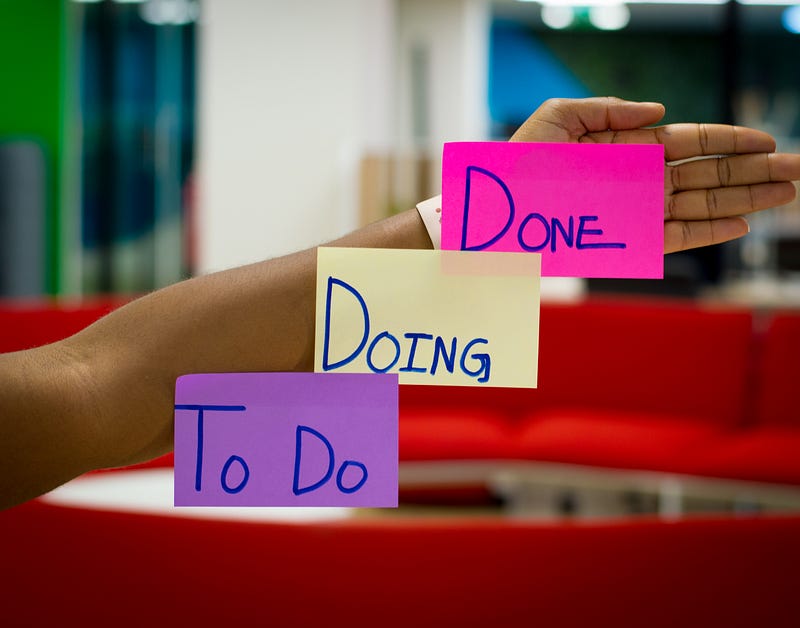Understanding the Intricacies of Self-Deception and Cognitive Dissonance
Written on
Chapter 1: The Fascination with Human Psychology
I find myself endlessly intrigued by the workings of the human mind, particularly its tendency to engage in self-deception.
For instance, when I declare, "I’ll start exercising next Monday," I genuinely believe it—despite the countless times in the past when that Monday never actually came. Even as I write this, another Monday has passed without any exercise on my part. Sure, I put on a tracksuit for the school run, but I doubt that counts!
Consider that friend (and we’ve all been there or known someone like this) who insists they won't reconcile with their on-again, off-again partner this time, and they genuinely mean it. Yet, before long, their social media is filled with #couplegoals.
How is it possible for us to completely disregard all evidence, logic, and past experiences that contradict our beliefs, and yet hold steadfastly to such clearly flawed viewpoints?
One explanation lies in a concept known as Cognitive Dissonance Theory, which was first explored by psychologist Leon Festinger.
Disclaimer: I am not a licensed mental health professional. My perspectives stem from my learning and experiences aimed at fostering growth for myself and my clients.
Section 1.1: Defining Cognitive Dissonance
If you’ve followed my work, you know I appreciate a solid definition! Dissonance indicates a lack of harmony or agreement between two or more ideas.
Cognitive dissonance occurs when conflicting thoughts, beliefs, or principles create unease within us. To alleviate this discomfort, we often try to reconcile our conflicting thoughts. Sometimes, this means deceiving ourselves about one of our beliefs to find a resolution.
Take my (non-existent) workout plan, for example. I subconsciously hold the belief that to be a "good" person, one must be fit and healthy. Consequently, I aspire to eat well and exercise regularly. However, I also deeply dislike exercising and will do anything to avoid it. If I pursue that line of thinking, I’ll end up not exercising, which would contradict my self-image as a "good" person.
This creates instant dissonance! Why? Because I consider myself a good person, yet this belief challenges that notion. To resolve this, I adjust my perspective. I convince myself that I do exercise, albeit infrequently. I plan, schedule, and have the right attire, attributing my lack of follow-through to life getting in the way.
With this self-deception, I can maintain the belief that I’m a "good" person, despite the lack of evidence supporting that claim.
It’s quite remarkable, isn’t it?
Sure, it alleviates our internal conflicts and saves us from constantly second-guessing our decisions. But it raises an important question—why not just act instead of creating a whole mental framework to justify avoidance?

Section 1.2: Strategies for Reducing Cognitive Dissonance
Research shows there are three primary ways to diminish or eliminate cognitive dissonance:
- Altering our beliefs (or behaviors if applicable)
- Minimizing the significance of our beliefs
- Introducing new beliefs
You guessed it—lowering the importance of our beliefs or adding new ones is often simpler than changing our existing beliefs, leading to self-deception.
For example, diminishing the importance might sound like, "Life is short; I should live in the moment." Meanwhile, adding a new belief could be, "There’s no definitive proof that X food leads to Y; new studies will always emerge!"
Raise your hand if this resonates with you. Yes, me too.
Changing our beliefs and behaviors is often the most challenging task, so it’s natural to avoid it. However, if we genuinely seek to eliminate cognitive dissonance, this path is most likely to foster lasting change.
This is where a support system can be invaluable. Lasting change tends to occur through repetition and time, and having someone to hold you accountable can produce better outcomes than self-directed efforts.
If you're interested, I touched on the science of change in a prior article.
So tell me, are there areas in your life where you’ve faced or continue to face cognitive dissonance? I’d love to hear your thoughts!
Chapter 2: The Impact of Self-Deception
The first video titled "Eminem - Love The Way You Lie ft. Rihanna" explores the complexities of relationships and self-deception within them.
The second video, "Love the Way You Lie Doesn't Mean What You Think | Eminem Lyrics Explained," delves into the lyrics and their deeper meanings, shedding light on the theme of cognitive dissonance in relationships.